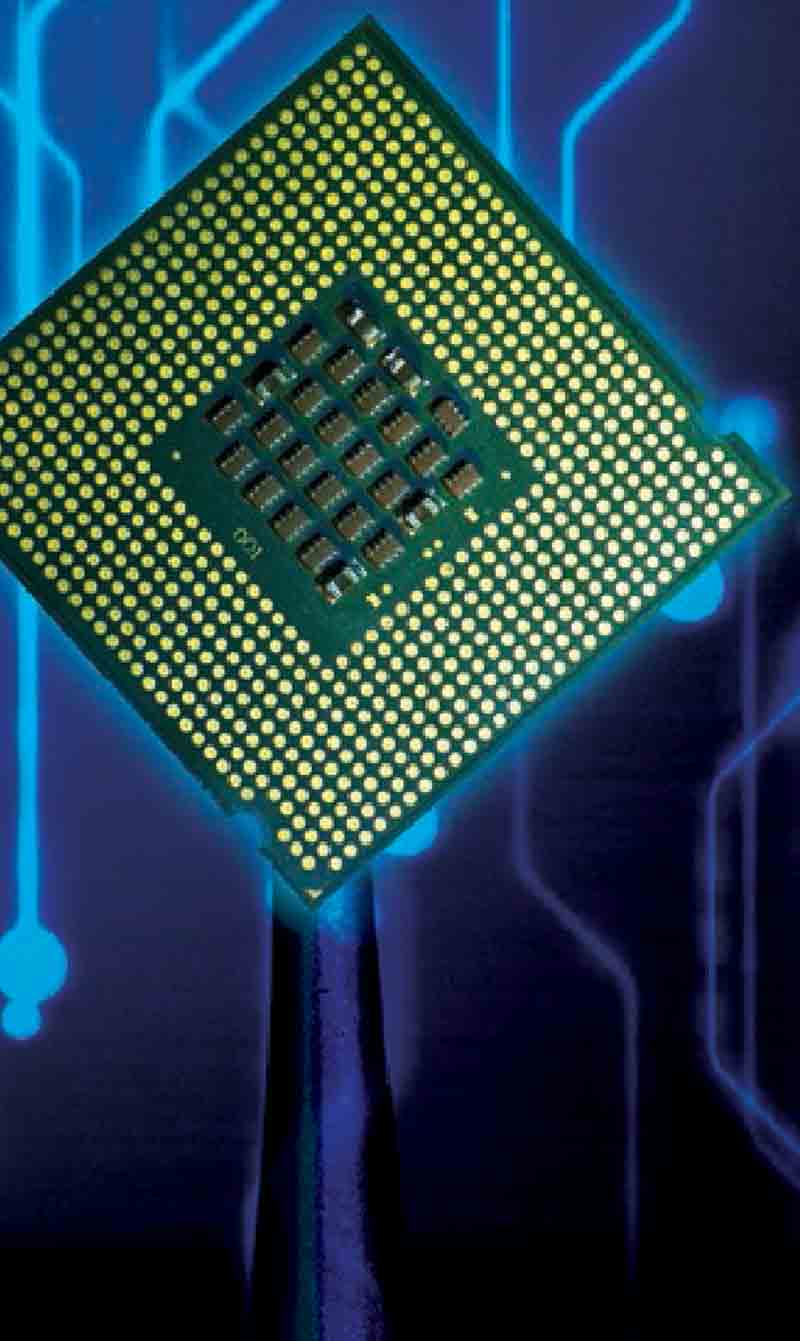The future of our everyday life
The setting of Hanna-Barbera cartoon, The Jetsons, weren’t far off from today’s reality. In 1960s, it prophecised life in 2062 and looking at the technologically-driven innovations in our life now, they weren’t far off the mark. Here, we list out why robots, IoT and quantum computing, three complex technologies, have been predicted to make our life easy. Or easier.
Really, we should have trusted what we saw happening in The Jetsons, flying cars, dependable robots and all. These things are hardly far from our reality and will be part of the very near future. With the advent of truly way-off-our-heads innovation due to high technology that makes IoT, quantum computing, decentralised financial systems and the like, possible, we can and should stop wishing for the return of the simple life. That ship has sailed. We need to tackle this technological revolution. And soon.
So, first, know the antagonists or for some, protagonists. We’ve taken the liberty of highlighting three and here are some facts on them, to mull over, and conquer.
Quantum computing is really beneficial
Once you’ve wrapped your head around quantum computing’s amazingly complex technology, you’d realise just how useful it is and not only at a manufacturing or ‘big’ level, but also at a smaller scale or individual level.
One of the best examples online is from Fiat Physica from 2015 – the very fact that they published a couple of years ago proves our anticipation rather than trepidation of the technology – and the article, Quantum Computer: The Future of Everyday Life, stated very simply a few examples of how useful it can be to you and me. ‘For example,’ is read, ‘imagine yourself getting ready for a day at work. You look at the weather forecast for the day so you know what to wear without freezing/sweating profusely. Thanks to quantum computers, the [weather] forecast is much more reliable, and you know to bring your umbrella for the rain later that day.’
Next, the article read, ‘You go to hop in your car but remember that you need to drop off your dry cleaning, drop off the kids, pick up your friend, and avoid the major highway because of a nasty accident. Thanks to quantum computers, your GPS is now able to not only predict the fastest and most traffic-free route for you, but to do it in real time as well. Now, by the time you get to work, you realise that you accidentally made a purchase on a dodgy website. But thanks to the new software that came out last week which incorporates quantum computing, your credit card information is still safe and sound.’
Finally, the article continued, ‘And on your way home after work, you go to the pharmacy to pick up the special medicine your mom needs for her illness. Just a few years ago this cure didn’t exist, but with the advancements in quantum computing, doctors and scientists were able to work together to find a cure and make it available in record time.’
Although the Fiat Physica website admitted to most individual owning a quantum computer might not be a reality but its mere existence could positively impact their day to day living. Yes, everything from weather forecast to life-preserving medicine solutions, made easy and brought to you by quantum computing.
The 8th WIEF Global Discourse on Quantum Computing on 20 September 2018 in Kuala Lumpur will address the potential strategic advantages and impact of quantum computing, particularly on how we do business. It’s an opportunity for members of the quantum community to discuss and exchange new ideas as well as identify issues of importance to them.
Robots deserve emotions
Before you cringe away from this very thought, first, let us pose to you this fact: loneliness today, is a growing social problem. It has been called a global epidemic and it’s not only with the old but also with the young – advanced economy such as Japan is plagued with hikkikomori, which is basically the condition of reclusive adolescents who don’t leave the house for months at a time and instead, dwell in their solitary existence.
Enter the robot. Kellog School of Management’s Kellogg Insight published an article featuring Professor Eli Finkel’s study that explored whether we’d bond with machines that seemed to care and understand our emotional and mental state. The answer, according to the study was, ‘a robot’s social responsiveness can win humans over’. Professor Eli believed that, ‘If we can program robots to engage in responsive social interaction that makes us feel good, then robots can do a lot of jobs.’
Guy Hoffman of Cornell University, according to the same article, created Travis, a ‘socially expressive robot that sits about a foot tall, looks like a small alien creature and can perform basic gestures like nodding and swaying’ and, at first, it was meant to be a robotic speaker dock as well as ‘a musical listening companion that can receive and play audio from a smartphone, while also dancing to the beat’. Then, they modified Travis, enabling it to communicate via text displayed on a small tablet screen to see if Travis could console people who had gone through a difficult experience. The result of the research leaned towards ‘yes’.
Professor Eli predicted, according to Kellogg Insight’s article, ‘Robots are getting more involved in daily life and we might not have to look too far in the future before robots might play an emotionally significant role in our lives.’ The day is here, as is evident by the likes of Hanson Robotics’ increasingly popular Sophia – who has a citizenship from Saudi Arabia – and more like ‘her’. Besides, it might be the biggest solution on how we can counter loneliness in an, ironically, increasingly over-populated world.
Give IoT a chance
A 2017 survey on Statista website, showed 26 per cent of respondents believe the Internet of Things can ‘bring about quality-of-life improvements for users and enterprises’, 25 per cent believe IoT can create new services and categories and 18 per cent believe it can reduce operating expenditure. True, a majority of those who participate in the survey spoke of benefits of IoT for the enterprises.
However, a 2014 article on Entrepreneur website titled 8 Ways the ‘Internet of Things’ will Impact Your Everyday Life states, stated that the changes it would bring to our day to day living included:
Monitoring your health: When a prescription is running low, an appointment will be made with your physician through connected RX bottles. Doctors will be kept informed with how often and when their patients are taking their medicine and those with ongoing health issues will be able to have things such as blood pressure and sugar levels monitored remotely.
Grocery lists: Smart refrigerators will sense when you are running low on staples such as eggs or milk and will automatically populate your grocery list. Stores will push reminders to add items to your list when it predicts you about to run out based on your historical purchasing behaviour and average buying trends. When you are walking through the store, reminders will get pushed to you to ensure you never have to make that dreaded second trip.
Monitoring your baby: Through their smartphones, parents will monitor their baby’s breathing, temperature and activity. Babies will don connected onesies that will send an alert when there is anything abnormal. Of course, the other babies in your life will also reap the benefits of connectivity. Pet monitoring systems will allow you to monitor their activity and behaviour from afar, so you can see how well your potty training is working and how honest your dog walker really is.
Tuning your car: As more machines speak to each other and systems integrate, you will no longer miss an oil change. Your truly smart car will pre-emptively reach out to your mechanic when it is time for the annual tune up or your tire pressure is running low, and by cross referencing your calendar, appointment suggestions will be delivered to you to confirm a time with one click.
Last words
Ready or not, the technological revolution has already begun. Humans’ smarts are reducing daily chores and jobs for us through, until recently, unthinkable, innovative creations. Thus, we need not use brain power for seemingly mundane things and apply our intelligence towards more of the bigger picture such as saving the world and prolonging life.
Experts may debate if this is a good thing or otherwise, and while the jury’s still out on that, we might as well arm ourselves with as much knowledge as can get – and thanks to the world wide web, we can get a whole lot of information – and be part of the revolution. You can’t fight them, might as well join them, that’s what we say.
Honestly, the one thing we can’t wait to happen is the vacuum tube transport where you are beamed up at almost supersonic speed rather than taking lifts or climbing stairs, like they did on The Jetsons. Don’t knock it, Elon Musk is already looking to bore the bowels of the earth to build his ‘Loop’ or a network of tunnels where you’d go from point A to point B at 240 km per hour. That goes to show, in our world today, everything’s possible, even The Jetsons non-dystopic yet futuristic life.
___________________
Photo by Steve Roe on Unsplash.





